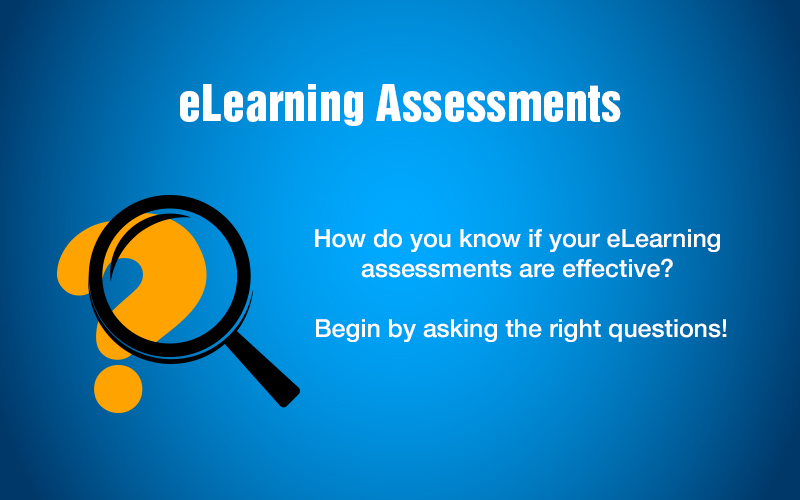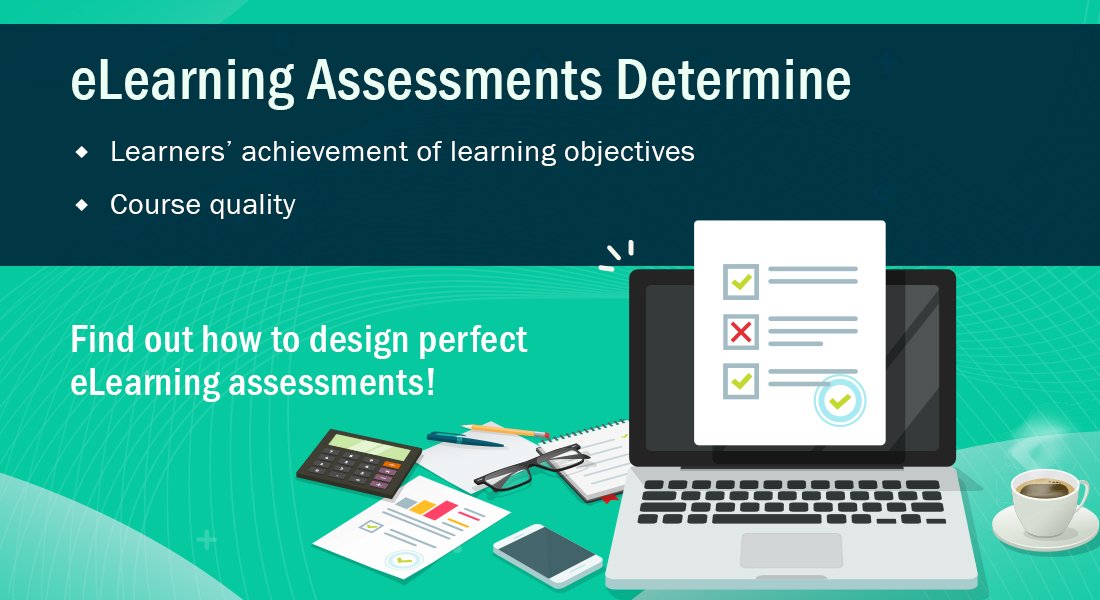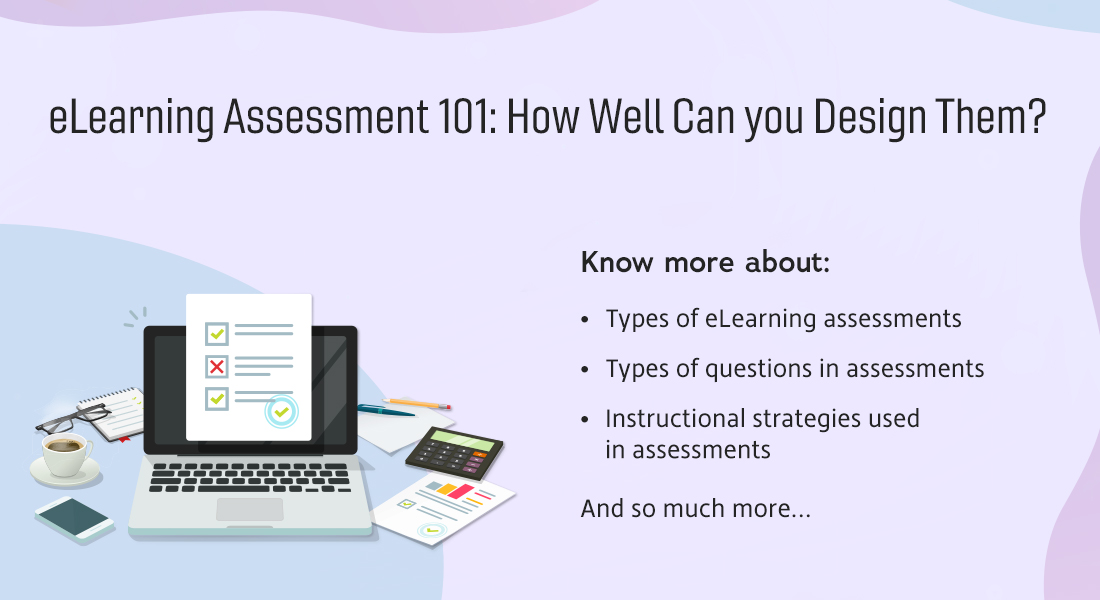Different Types of Questions in E-learning Assessments
This blog post shares insights on what are the different types of questions in eLearning assessments.

As per Loughborough university and Joint Information Systems Committee (JISC) assessments are the important part of the learning strategies. Assessments test the learner’s accomplishment of learning objectives. They are used to strengthen learning as well as evaluate the learner’s comprehension of a course. In eLearning, assessments are given either at the end of each topic as formative assessments or at the end of the course as summative assessments.
Formative assessments are used to monitor and measure the learning achievement after each learning point whereas summative assessments are used to evaluate and monitor the learner’s level of understanding at the end of the course.
An important point to be remembered while framing assessment questions is to link them with the learning objectives. There are different types of questions that can be included in an eLearning course. They include:
1. True/ False
In this type of assessment, the learner has to choose either true or false from a given statement. This type of assessment can be used as both formative and summative assessments. We use this type of assessment when we want to test the learner’s prior knowledge.
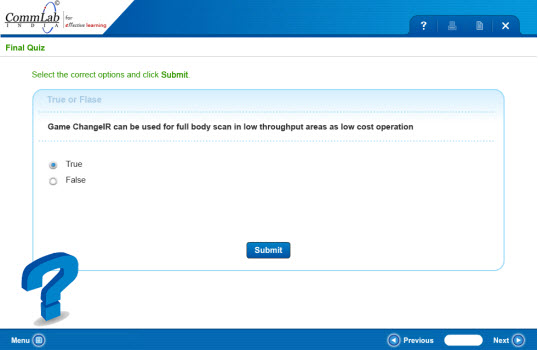
Things to remember:
- Use active voice instead of passive voice
- Use declarative and specific sentences that are not ambiguous
- Every part of the sentence should either be completely true or completely false.
- If negatives such as ‘NOT’ are used, they should be emphasized.
- Avoid unaccustomed vocabulary
Note: There is a 50% chance for the learner to guess the right answer and get it right.
2. Multiple Choice Questions
Single select and multiple select are two types of multiple choice questions, used in eLearning. In a single select question, the learner has to choose the correct answer from a list of options. A single select question has only one correct answer.
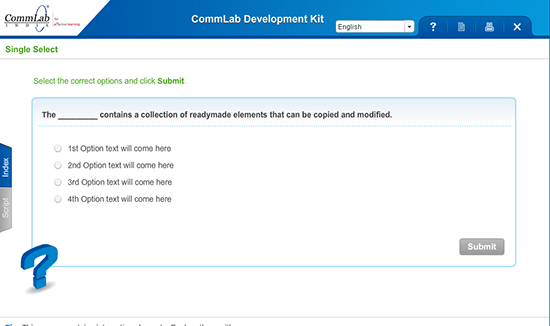
A Multiple select question has four or more options. We use this type of assessment questions, when we want the learner to recall concepts. Usually in this type of MCQs there are two or three correct options.
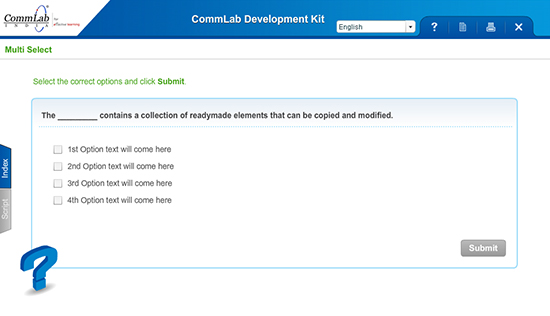
Things to remember:
- The options should be clear, perfect and specific
- There should be no superimposing options
- Distractors should be plausible and of same length as the correct answers
- Provide partial feedback to learners
- Avoid repeating phrases in the options
- As MCQs consist of more than one option as answers. Give a clear instruction to the learner, such as ‘Select ALL that Apply’
- Avoid ‘all the above’ and ‘none of the above’ as options
Note: Multiple select should not be used in summative assessments.
3. Fill in the blanks:
Fill in the blanks are also known as no-choice questions. This type of assessment is used to match the exact text, where the learner needs to enter a word or an idiom to answer the question.
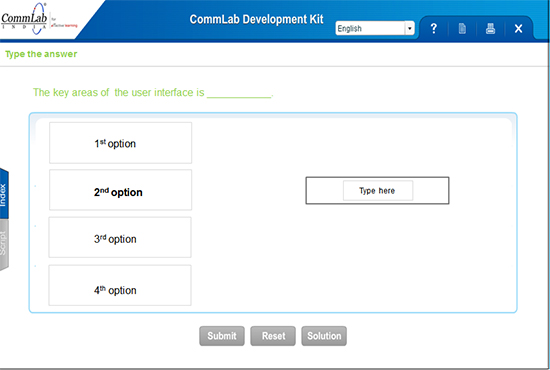
Things to remember:
- Make sure that only the key word of a sentence is the answer
- Do not start the sentence with a blank, as it may confuse the learner
- Frame a question with only one specific option
- Try to avoid long sentences with multiple breaks
Note: Fill in the blanks should not be used in summative assessments.
4. Matching:
This type of assessment question is used, where you want the learner to match two sets of data. Here, options in the first column are referred to as ‘premises’ and those in the second are called ‘responses’. Matching can be in the form of:
- Drag and match
- Drag and drop
- Drop down
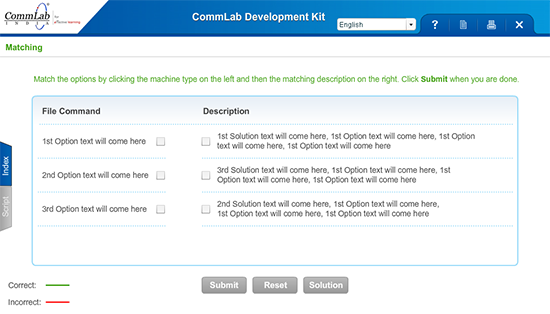
Thing to remember:
- Provide clear instructions
- Use column approach while framing the options, such as put all terms in one column and their definitions in the next column i.e., terms on the left and definitions on the right
- Number of premises and responses should be equal
- Limit the options to 5
- Do not include hints or clues in the question
Note: Matching questions can be used in formative assessments but not in summative assessments.
5. Others
There are other types of assessments such as word-builder, jigsaw puzzles, etc.
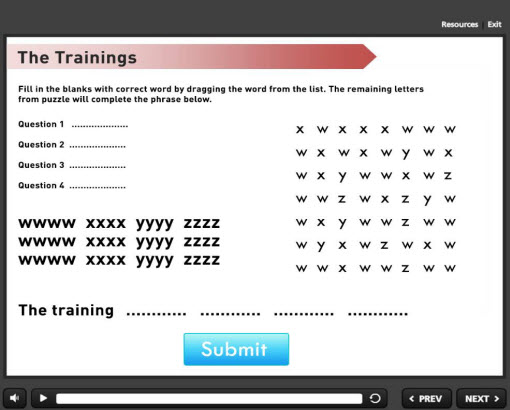
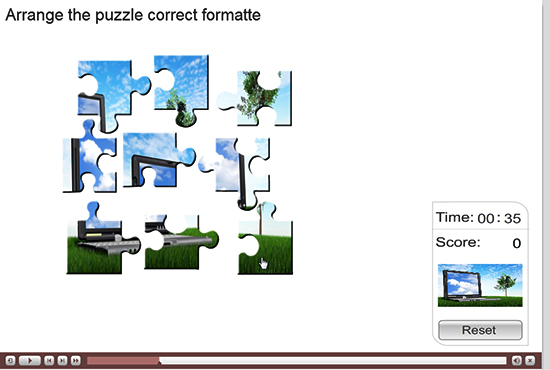
The above mentioned are some of the question types, used in eLearning. They should be used, based on your content and learning objectives. Please do share your thoughts on the same.



